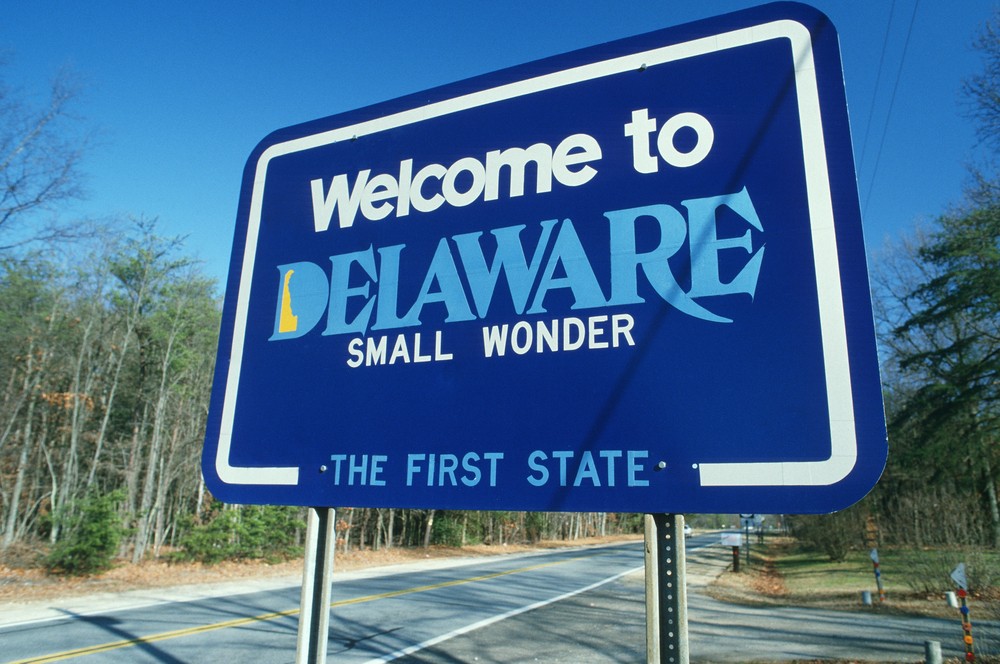Several weeks ago, I had the pleasure of speaking about open data at the coIN Loft in Wilmington as part of Delaware Innovation Week.
My talk focused on how Delawareans can help push state and local government to release more open data and, hopefully, adopt formal open data policies. Delaware already has a growing civic hacking community, and the turnout for Delaware Innovation Week shows that there is a deep and active developer community in the First State. The City of Wilmington appears to be moving closer to adopting open data, and there are currently some limited open data sets available from the State.
All of the ingredients are in place for open data to take off in Delaware. When it does, I believe the state has the potential to become a national leader on open data.
Here’s why.
1. Delaware is small.
This might seem like a strange point to bring up in the context of open data, but I believe that it could give Delaware a unique advantage.
Government functions are much more highly concentrated at the state level in Delaware than in other states. If we look at data from the U.S. Census, we see that local government expenditures in Delaware account for only about 30 percent of total state and local government spending. This is well below other states, which have a more even split of expenditures between the state and local governments. (According to the Census Bureau, the national average for local government spending as a percentage of total state and local spending is 53 percent.)
This means that in Delaware, many government functions that you’d typically see carried out at the municipal level — e.g., education, transportation, etc. — are carried out at the state level. Since more government functions are carried out at the state level, a concerted effort to release data by state government could have an outsized impact for Delaware.
State governments generally lag behind municipal governments in terms of adopting open data. The push to adopt open data at the city-level has advanced — in part — because local governments generally provide services that impact citizens in a much more intimate way than services from state governments. To put it succinctly, local governments have more of the data people really care about. In Delaware, this is less often the case — the state often provides services that in other places would be carried out by a municipal government.
2. The State of Delaware already has the institutional infrastructure.
The Delaware Government Information Center (GIC) — of which I was the Director when I worked for the State of Delaware in 2001 — is perfectly positioned to support open data.
The mission of the office — which is part of the Department of State — is to “connect citizens to government via the Internet.” Since the early 2000s, when the GIC was created, the focus of the office has largely been on promoting the publishing of government information on state agency websites. In those days, setting up a state office specifically focused on promoting citizen access to data — particularly one that wasn’t part of the state IT organization — was pretty revolutionary.
In 2015 (and beyond) ensuring citizen access to government information goes beyond websites — open data is now a critical part of how citizens access information about their government. Promoting the publishing and use of open data would fall pretty cleanly into the existing mission of the GIC. So if the State of Delaware opts to enact an open data policy that compels agencies to publish data, a crucial bureaucratic mechanism to support this activity is already in place.
The GIC has a long history of promoting access to government information. It is already well known to legislators, budget officials and state policy makers. It also has optimal organizational positioning within state government. It’s part of the same state agency as the Division of Libraries, which has a similar charge of providing public access to information, and falls under the purview of the Secretary of State (typically an influential voice in state policy discussions).
3. Delaware is uniquely positioned to benefit from a growing trend toward regional collaboration on open data.
The state is a stone’s throw from the City of Philadelphia, which was an early adopter of open data and continues to lead the nation in its use of open data and collaboration with civic hackers. Its also close to New Jersey, where open data efforts are being promoted across the state by groups like Sustainable Jersey.
The Delaware Valley area — which encompasses Northern Delaware, Southeastern Pennsylvania and South Jersey — is home to an incredibly mobile population. It’s common for people to live, work and recreate in multiple states because of the close proximity of state boundaries. Maybe nowhere else in the nation does the promise of regional collaboration on open data hold as much potential benefit as it does in the Delaware Valley.
The State of Delaware has a chance to initiate this move toward regional collaboration by adopting a formal open data policy and working with local technologists and software developers to create things that provide value to citizens.
2016 is an election year in Delaware. Here’s hoping that the next leader of the First State sees the enormous potential benefit of open data, and the unique opportunity that Delaware has to capitalize on it.







